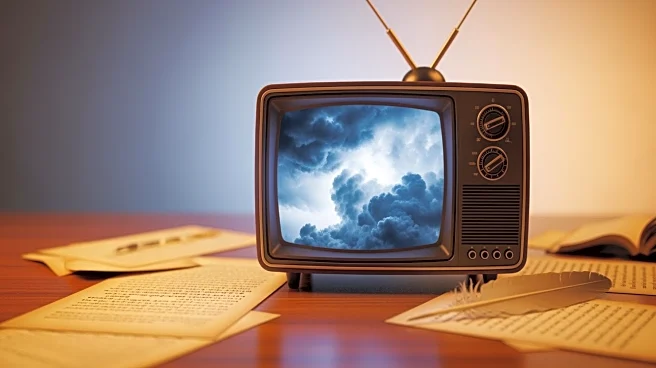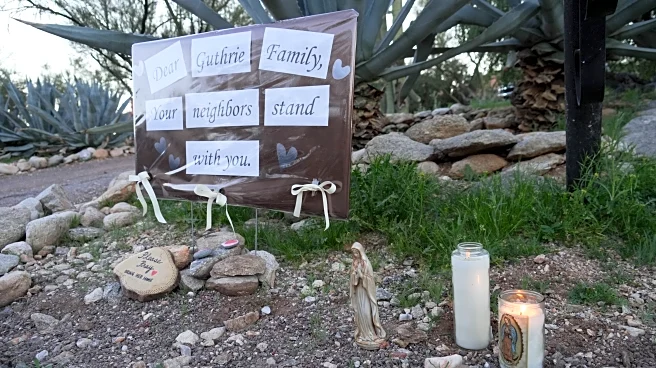What's Happening?
Historian David Nasaw has released a new book titled 'The Wounded Generation,' which delves into the psychological struggles faced by World War II veterans. The book examines the emotional traumas, such as survivor's guilt and PTSD, that were not widely
recognized or understood at the time. Nasaw's research highlights the experiences of veterans who underwent treatments like electro-shock therapy and provides insights into the long-term impacts of war on mental health. The book aims to shed light on the invisible scars carried by veterans and the challenges they faced upon returning home.
Why It's Important?
Nasaw's book contributes to the ongoing conversation about mental health and the recognition of PTSD among veterans. By exploring the historical context of WWII veterans' experiences, the book underscores the importance of understanding and addressing the psychological impacts of war. This can lead to better support systems and treatment options for current and future veterans. The book also serves as a reminder of the sacrifices made by veterans and the need for society to acknowledge and support their mental health needs.
Beyond the Headlines
The book's exploration of WWII veterans' psychological scars may prompt discussions about the ethical considerations of wartime mental health treatment and the evolution of psychiatric care. It highlights the cultural shifts in recognizing and treating PTSD, encouraging a more compassionate approach to veterans' mental health. The book may also inspire further research into the long-term effects of war on mental health and the development of more effective therapies.
















